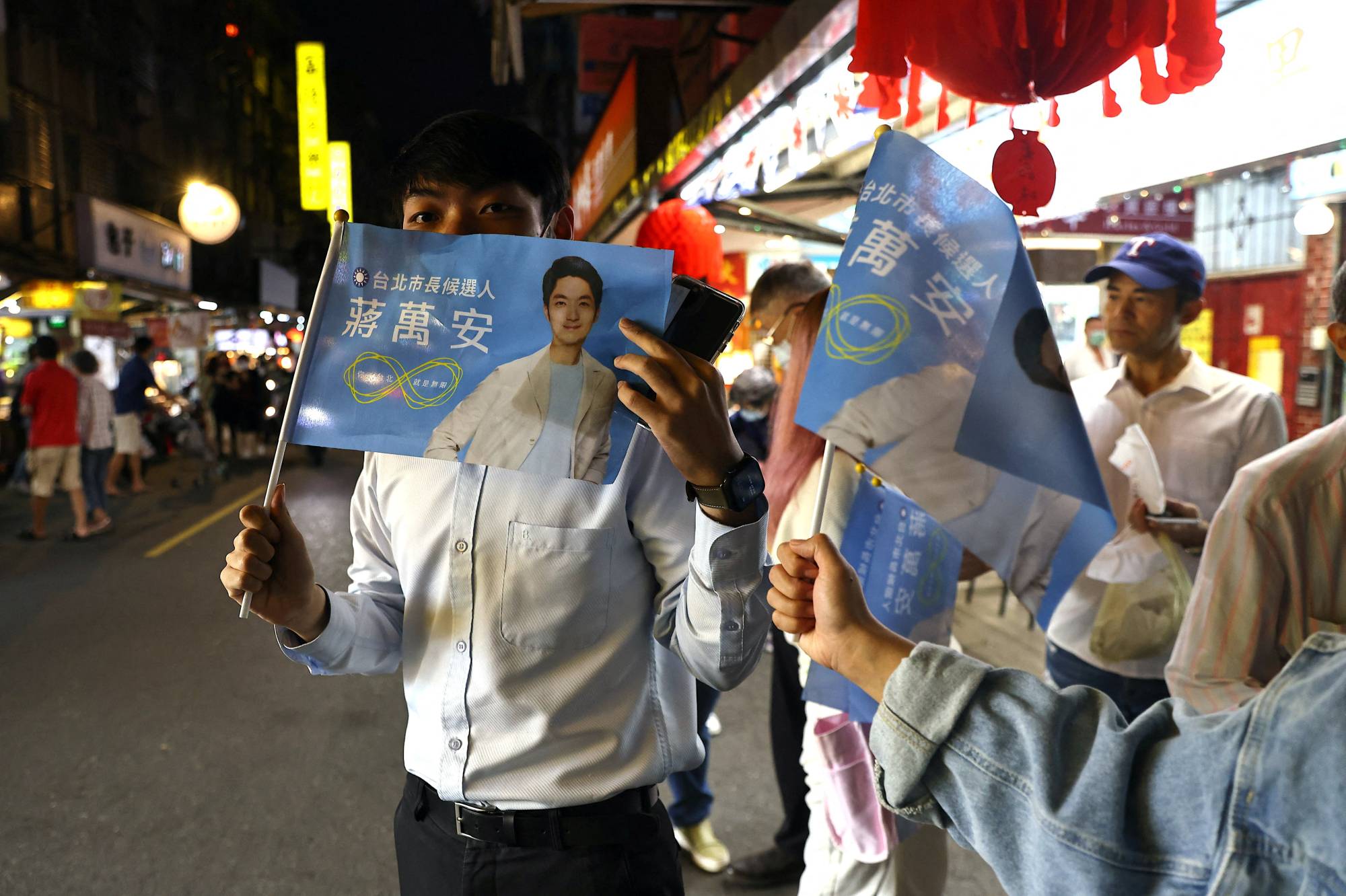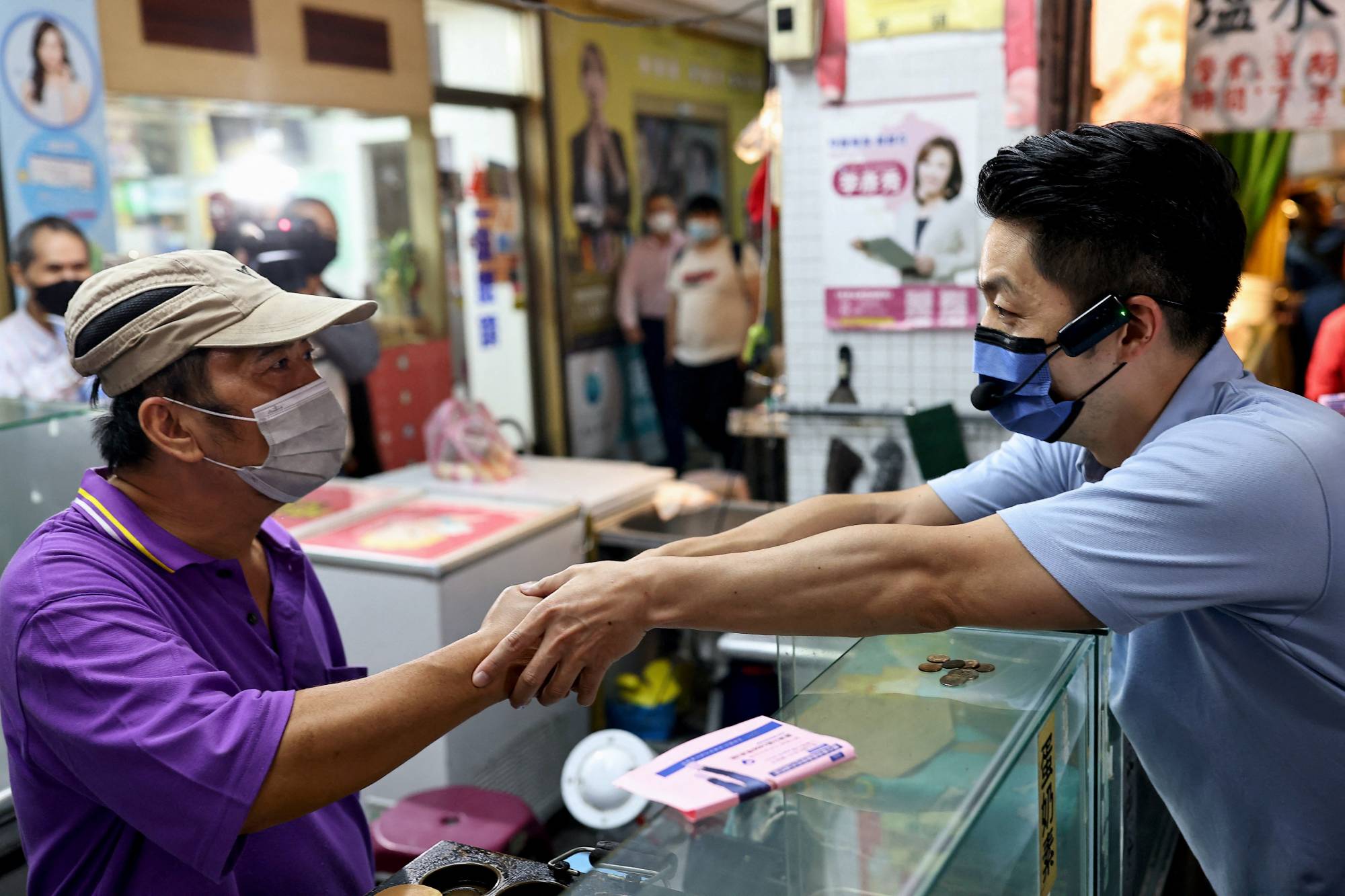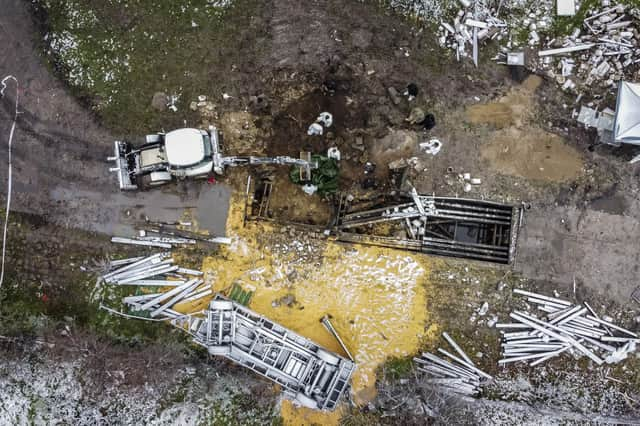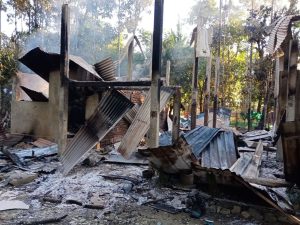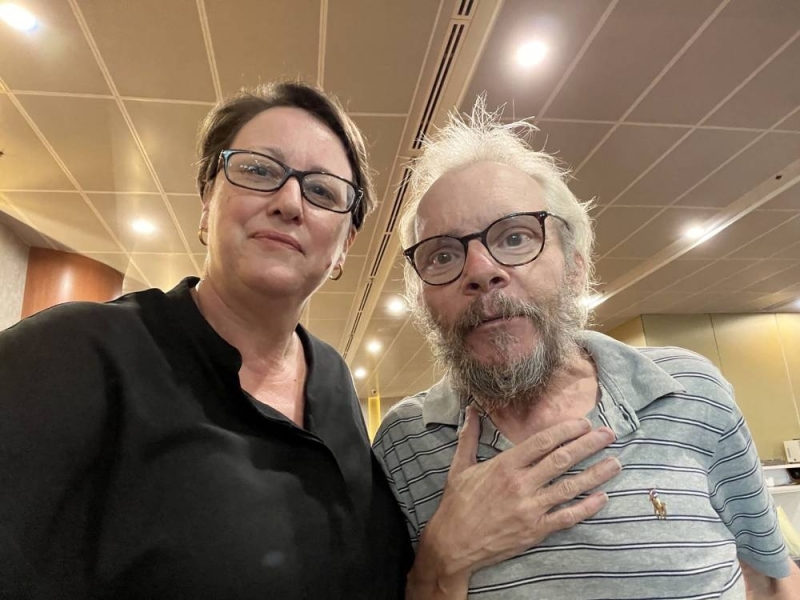RFA blogger Nguyen Tuong Thuy honored with Vietnam human rights award
2022.11.21

Nguyen Tuong Thuy holds flowers during a peaceful anti-China protest in Hanoi in 2014.
Jailed Radio Free Asia blogger Nguyen Tuong Thuy and six other activists have been awarded the 2022 Human Rights Prize by the U.S.-based Vietnam Human Rights Network (VHRN). The other recipients include poet Tran Duc Thach and members of the Vietnam National Self-Determination Coalition.
All of this year's recipients are serving long prison sentences. Thuy, 72, is serving 11-years for "propaganda against the state." Thach was sentenced to 12 years on the charge of "activities aimed at overthrowing the government."
The Vietnam National Self-Determination Coalition consisted of Luu Van Vinh, Nguyen Van Duc Do, Tu Cong Nghia, Nguyen Quoc Hoan, and Phan Trung. All were convicted of the same charge of "activities aimed at overthrowing the government" in a trial in Ho Chi Minh City in October 2018. They received prison sentences ranging from eight to 15 years.
“They fought with their own lives for human rights and democracy,” Nguyen Ba Tung, Executive Director of VHRN, told RFA.
“Poet Tran Duc Thach and journalist Nguyen Tuong Thuy used their pen to non-violently express their aspirations.
“Mr. Luu Van Vinh and his friends in the Vietnam National Coalition for Self-Determination worked to call on the Communist Party of Vietnam to return the right of national self-determination to the entire [Vietnamese] people so that the people have the full right to choose the political system that they want."
This year's winners were announced on Nov. 20. They were selected from 19 nominations from within Vietnam and abroad.
“The purpose of the Vietnam Human Rights Award is first and foremost to honor the contributions of Vietnamese human rights activists. At the same time, this is also a way to nurture and motivate those who are, and will be, committed to that noble mission,” said Tung.
Nguyen Tuong Thuy co-founded the Independent Journalists Association of Vietnam in 2014. He was elected vice president of the organization until his arrest in May 2020. He was also a regular blogger for RFA on democracy, human rights, and social issues.
In early 2021, during a one-day trial, he was found guilty of a ‘propaganda’ charge, along with the group’s Chairman, Pham Chi Dung and Le Huu Minh Tuan, editor of the Vietnam Times website.
Tran Duc Thach, 70, was a North Vietnamese army officer during the Vietnam War. He is the author of the memoir "The Haunting Hole" recounting how North Vietnamese soldiers massacred hundreds of civilians in Dong Nai province during the final campaign of the Vietnam war in 1975. He received the Nguyen Chi Thien Prize 2020 for his work, an award named after a Vietnamese dissident poet who died in 2012.
In 2020, Thach was arrested on charges of “subversion” and sentenced to 11 years in prison plus three years of probation.
Luu Van Vinh, 55, participated in many peaceful protests in Hanoi against China's aggression in the South China Sea in 2011. He was arrested in November 2016. Two years later he was sentenced to 15 years in prison along with four other members of the Vietnam National Coalition for Self-Determination.
The United Nations Working Group on Arbitrary Detention (WGAD) has reported that the arrests and conviction of Thuy, Thach and Vinh violate Vietnamese and international human rights treaties that Hanoi has signed and ratified.
This year's Vietnam Human Rights Award ceremony will be held in Germany on International Human Rights Day, which is marked on December 10.

